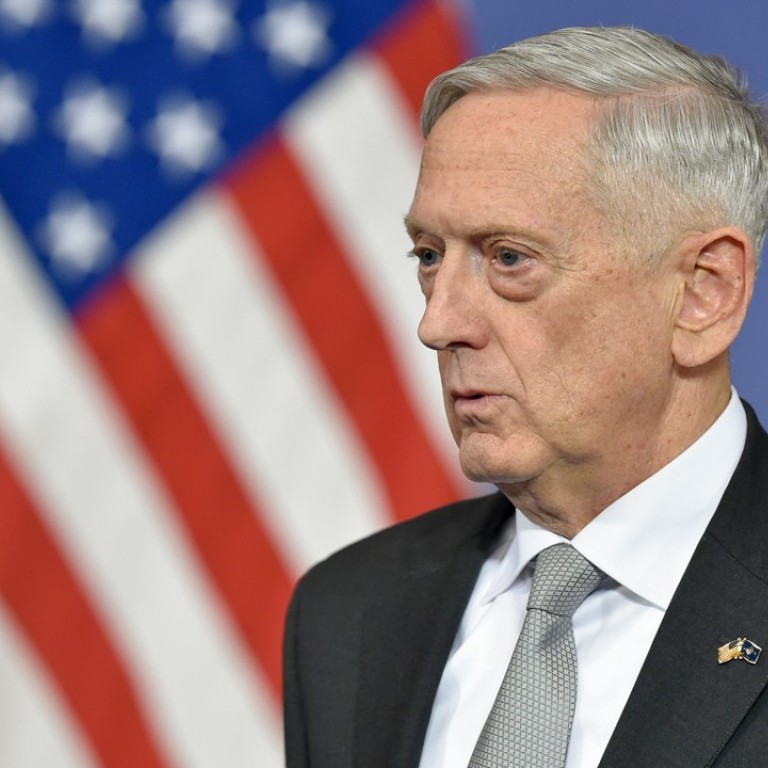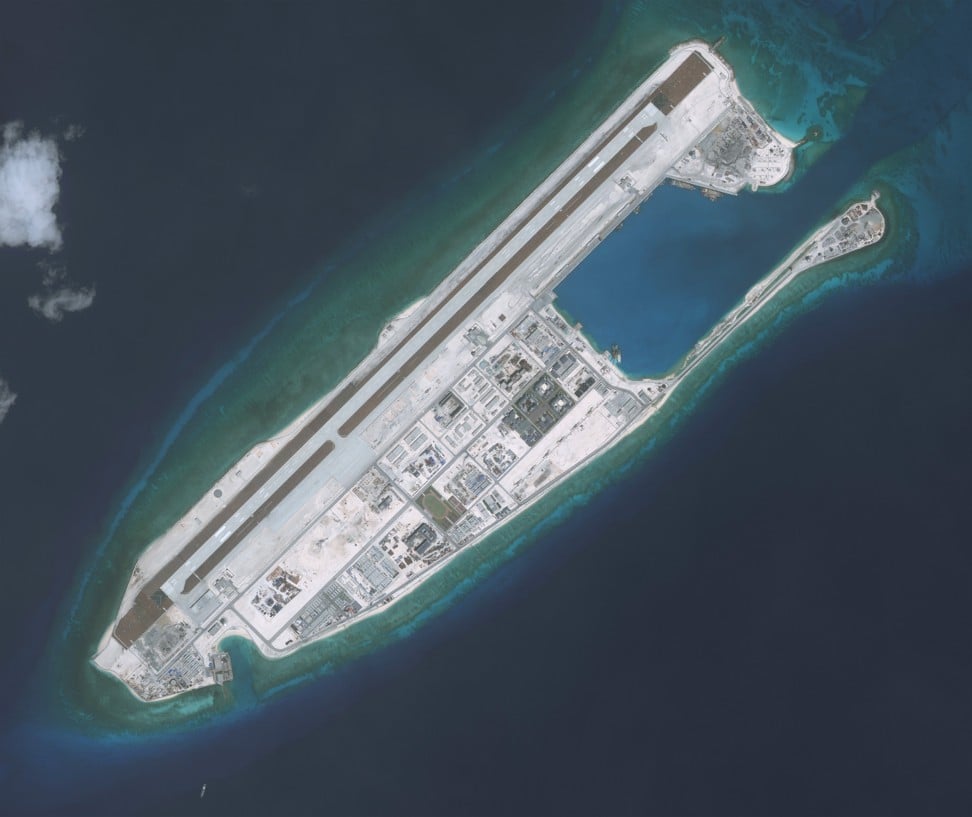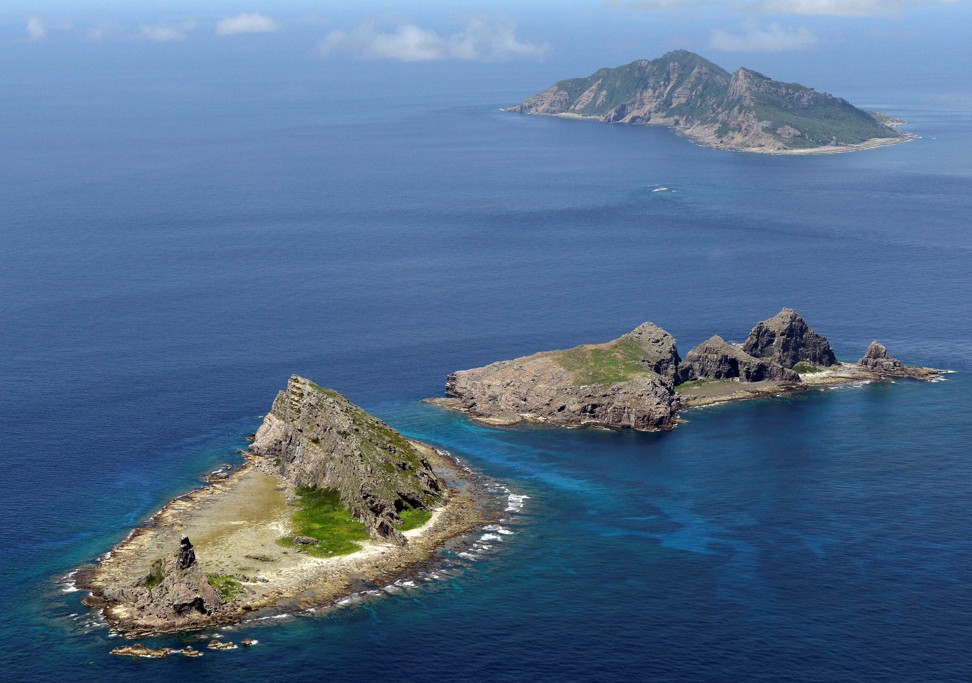
US defence chief Jim Mattis set to visit China in spring, Pentagon spokeswoman says
Mattis likely to ask Beijing to step up efforts towards achieving a peaceful resolution to the North Korean nuclear issue
US Defence Secretary Jim Mattis plans to pay his first official visit to China in the spring to seek further cooperation from Beijing amid rising challenges from North Korea’s nuclear threat, according to the Pentagon.
Chinese military and nuclear analysts said Mattis’ trip would help both countries narrow their differences on North Korea, with Beijing still hoping that Washington will not launch a military attack against Pyongyang.
US Defence Department spokeswoman Dana White told Japan’s Kyodo news agency that the trip – the first visit to China by a Pentagon chief in four years – was planned for the spring.
During the visit, Mattis and senior Chinese officials are expected to discuss measures to rein in Pyongyang’s nuclear and missile programmes, as well as to expand military-to-military exchanges between Washington and Beijing.
In possible meetings with Chinese President Xi Jinping and top defence officials, Mattis is likely to ask Beijing to step up efforts towards achieving a peaceful resolution to the North Korean nuclear issue.
It is believed the Pentagon chief will also express concern about China’s assertive territorial claims in the East and South China seas.
“The issue is how it does it, and whether or not it’s undermining the very systems that have allowed for its rise,” White said in reference to Beijing’s attempts to expand its sphere of influence in Southeast Asia and beyond, such as Africa.
“We would love for it to use its influence more in Pyongyang” for the denuclearisation of the Korean peninsula, she said of China, the biggest trade partner and a major oil supplier to North Korea. “We need their influence.”
Song Zhongping, a former instructor with the People’s Liberation Army’s Second Artillery Corps, said Beijing and Washington were still far apart on the kind of sanctions the United Nations should impose on Pyongyang.
“The US has insisted on cutting all economic aid to the North, while Beijing has stressed the need for humanitarian assistance to ensure the welfare of civilians in North Korea,” said Song, now a military commentator for Hong Kong’s Phoenix Television.
“Washington leans towards using extreme measures, including military force, to solve the nuclear issue, but Beijing is opposed because it would affect China … Xi will reaffirm that anti-war stance during Mattis’ trip.”
Washington has also rejected Beijing’s suggestion that the US and South Korea stop joint military exercises directed at North Korea in exchange for an end to Pyongyang’s nuclear programme.
Song said Beijing needed to understand what extreme measures Washington might take to overcome Pyongyang’s threat.
“All messages from Mattis will help Chinese leaders come up with relevant strategies,” he said.
Cui Zhiying, director of the Korean Peninsula Research Centre at Tongji University in Shanghai, said Mattis’ trip would increase communication between the two countries and help them avoid misunderstanding on the issue.
“But the most effective method to solve the nuclear problem is to resume ‘six-party talks’, letting the two key state parties, North and South Korea, take part in the negotiations,” Cui said.
During the planned trip, Mattis is expected to explain the China policy of US President Donald Trump and his administration.
In its national security strategy released in December, the administration called China a “competitor” in political, economic and military spheres, and a “revisionist power” seeking to “shape a world antithetical to US values and interests”.
“There are many things that the United States and China can cooperate on, but we’ll confront China when we need to,” White said.
Asked about Thursday’s incident that saw a Chinese frigate sailing near the disputed Diaoyu Islands – called the Senkaku Islands by Japan – White avoided speculating on Beijing’s intention, but said the action might reflect “China’s growing confidence in blue water”.
The group of East China Sea islets is administered by Japan but claimed by Beijing and Taipei.
Referring to Beijing’s “militarisation” of outposts in disputed areas of the South China Sea, White said: “China has become more muscular with respect to the South China Sea.”
China’s mainland has overlapping territorial claims with Brunei, Malaysia, the Philippines, Vietnam and Taiwan in the South China Sea, a strategic waterway through which more than a third of global trade passes.
On the rising anxiety among residents of Japan’s southern island prefecture of Okinawa over a series of incidents involving US military aircraft – including emergency landings by two military helicopters recently – White said the US military would step up measures to prevent similar cases and ensure the safety of local residents.
“It’s imperative that we always work to address the problems and smooth out the rough spots,” she said. “We’re always looking at what we can do” to improve the situation.
US troops “respect and appreciate the ability” to be stationed in Okinawa, the Japanese prefecture that hosts the bulk of US military facilities.
Additional reporting by Kyodo



